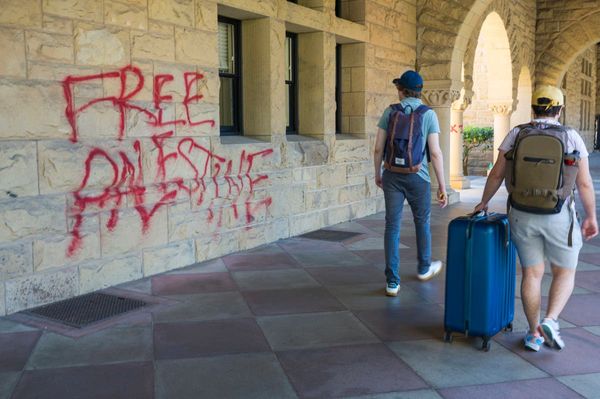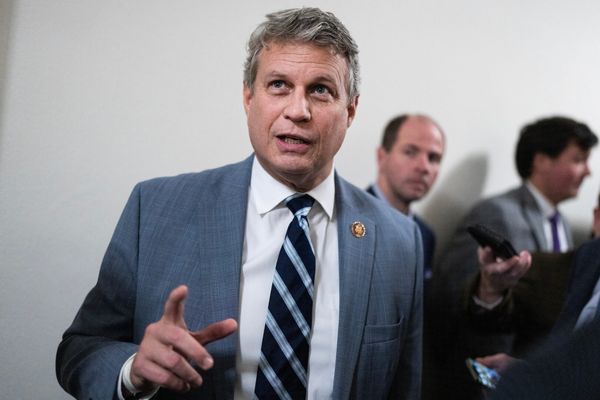The state of the republic is precarious, but I am hopeful that democracy will prevail because it is resilient. We the people have faced serious threats in the past, including even a Civil War, and we have overcome them. We must continue to pass laws to strengthen our democracy in many states, while in others, we will not back down from defeating a new generation of Jim Crow laws crafted to keep targeted communities from the polls.
We all have a role in strengthening our democracy — especially as the leading Republican presidential candidate who summoned the Jan. 6 insurrection faces multiple indictments and remains under investigation. We have arrived at a moment in our history where many candidates are unwilling to concede defeat at the polls and instead claim, baselessly, that elections were stolen from them.
Those lies have undermined trust in our elections and even our election officials. Across the country, seasoned election officials have been driven out of office because of threats and harassment by election deniers. The same lies have also been used as fuel to pass dozens of laws in the states that make it harder for Americans — particularly in Black and brown communities — to have a say in choosing their elected leaders.
Those new anti-voter laws follow a slew that has passed since the Supreme Court gutted the Voting Rights Act a decade ago. Since the high court’s 2013 decision in Shelby County v. Holder, 94 restrictive voting laws have been passed in 29 states.
Another ruling from the Supreme Court in 2019, Rucho v. Common Cause, controversially ruled that federal courts cannot review and strike down partisan gerrymanders despite recognizing that those unfair maps are “incompatible with democratic principles.” The result has been still more politicians choosing their voters instead of voters choosing their politicians.
Just as our protections for voters have been undercut by the Supreme Court, so have our campaign finance laws. The Citizens United decision in 2010, and other rulings that followed, have brought unlimited amounts of special interest money into our elections — much of it from undisclosed donors.
Meanwhile, a series of ethics scandals have engulfed the Supreme Court. Investigative reporting has revealed that several conservative justices accepted lavish vacations from billionaire conservative donors. None of these trips ever appeared on the justices’ financial disclosure filings. In some instances, the billionaires who bankrolled the private jets and luxury yachts later had business before the court, but the justices did not recuse themselves from those proceedings.
But despite these and other setbacks, many Americans continue to fight for a democracy that lives up to its promise. There are legislative efforts to turn back these attacks on our democracy — and they’re working. In 2021, some of the most comprehensive legislation in decades to protect the freedom to vote passed the House of Representatives but was stopped in the Senate by filibusters — relics of the Jim Crow era when politicians fought civil rights reforms, including the original Voting Rights Act.
In December 2022, strong bipartisan majorities in the House and the Senate passed reforms to the Electoral Count Act to curb efforts to overturn presidential election results and defy the will of the people. And reforms to safeguard our democracy continue to pass at the state and local levels. These laboratories of democracy have passed laws to strengthen voting rights and expand access to the ballot for all Americans; they have created independent redistricting commissions to end gerrymandering and remove partisan politics from the redistricting process; and they have enacted reforms to break the grip of big money in politics by creating citizen-funded elections that empower small donors as a viable option for those seeking elected office.
And just this month, the Supreme Court handed down two rulings — Moore v. Harper and Allen v. Milligan — victories for voters and our democracy. With these rulings, courts nationwide can hold state lawmakers accountable when they pursue unfair and discriminatory voting maps and voter suppression tactics.
“We the People” are the first three words of the Constitution. It’s up to us to ensure that our democracy includes everyone, endures and delivers for the people. We narrowly averted disaster on Jan. 6, 2021, but the threats to our democracy remain. Together we must stand strong and united because when we the people do so, we win.
____
ABOUT THE WRITER
Marilyn Carpinteyro is the interim co-president of Common Cause. She wrote this for InsideSources.com.







